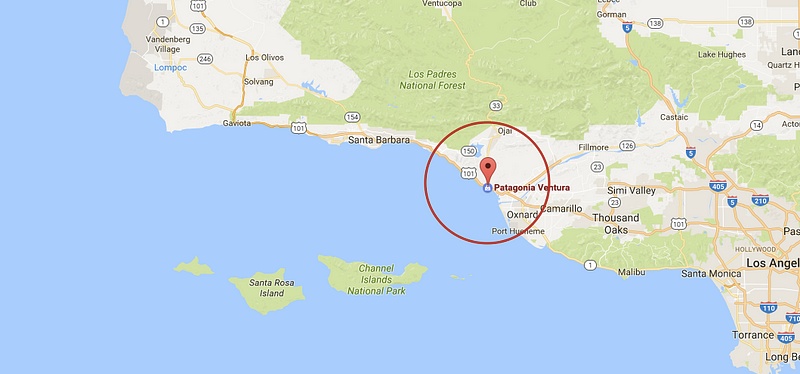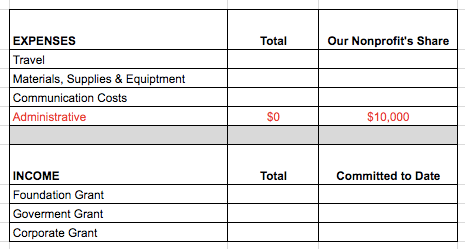Patagonia Grant Guidelines
Patagonia funds only environmental work. We are most interested in making grants to organizations that identify and work on the root causes of problems and that approach issues with a commitment to long-term change. Because we believe that the most direct path to real change is through building grassroots momentum, our funding focuses on organizations that create a strong base of citizen support.
We support small grassroots activist organizations with provocative direct-action agendas, working on multipronged campaigns to preserve and protect our environment. We think the individual battles to protect a specific stand of forest, stretch of river or indigenous wild species are the most effective in raising more complicated issues—particularly those of biodiversity and ecosystem protection—in the public mind. We help local groups working to protect local habitats and frontline communities through bold, original actions. We look for innovative groups that produce measurable results, and we like to support efforts that force the government to abide by its own—our own—laws.
Because we’re a privately held company, we have the freedom to fund groups off the beaten track, and that’s where we believe our small grants are most effective.
We fund work that:
- is action-oriented
- is quantifiable
- builds public involvement and support
- is strategic in its targeting and goals
- focuses on root causes
- accomplishes specific goals and objectives that can be effectively measured to evaluate success
- takes place within the following countries: United States, Canada, Japan, Korea, Australia, Chile, Argentina, United Kingdom, The Netherlands, Switzerland, Sweden, Spain, Norway, Luxembourg, Italy, Ireland, Germany, France, Denmark, Belgium, Austria and the Czech Republic.
We do not fund:
- organizations without 501(c)(3) status or a comparable fiscal sponsor
- trail creation, maintenance, or restoration
- any dam renovations, human-assisted fish passage infrastructure or hatchery programs
- land acquisition, land trusts, or conservation easements
- research, unless it is in direct support of a developed plan for specific action to alleviate an environmental problem
- environmental conferences
- endowment funds
- political campaigns
- green building projects
We accept one proposal per group per our fiscal year (May 1–April 30), with deadlines varying from program to program. Our typical grant size also varies from program to program, but generally ranges between $5,000 and $20,000.
Please review the individual grant program descriptions in the right sidebar to understand an appropriate request amount for your project and any deadlines that you should be aware of.
Is your work located outside the United States?
Your proposal will be reviewed by one of our International Grants councils. All organizations whose work is located outside the United States should refer to the International Grants Program page, which will provide important information about our International Grants requirements and direct you to the appropriate country’s guidelines and application.
Is your work located near one of our North American retail stores?
Your proposal will be reviewed by our store employees. Unlike our other programs, our retail stores accept proposals on a rolling basis throughout the year. Please review our Retail Grants Program guidelines for more information about Retail Grants criteria, funding amounts, deadlines, and how to apply for a Patagonia Retail Grant.
Is your work national in scope or not located near one of our U.S. retail stores?
Your proposal will be reviewed by an employee grants council at our company headquarters. Please review our Corporate Grants Program guidelines for more information about Corporate Grants criteria, funding amounts, deadlines and how to apply for a Patagonia Corporate Grant.
Does your work use media (including film, photography, and books) as a way to engage communities to take action?
Your proposal will be reviewed by the Media Grants Council at our company headquarters. Please review our Media Grants Program guidelines for more information about Media Grants criteria, funding amounts, deadlines and how to apply for a Patagonia Media Grant.
FREQUENTLY ASKED QUESTIONS
Before reaching out to our Patagonia Grants Team or CyberGrants Support, please review our Frequently Asked Questions. We may be able to quickly answer your question or at least direct you to the appropriate contact person for quicker and more effective responses.
Additional Information
For all questions related to what is a fit for our program, funding amounts, deadlines and how to apply, please review the program guidelines located in the right sidebar. Please note that the deadlines and funding amounts are different for each grants program, so please review all guidelines if you are unsure which program your project fits in.
For all technical assistance with CyberGrants and the application process, please contact our support team at cgsupport@cybergrants.com.
For all questions not answered in the Frequently Asked Questions and not related to CyberGrants or the application process, please reach out to our grants team at grants@patagonia.com.
4 Strategies Proven to Win Patagonia Environmental Grants
Patagonia Grants are very popular, highly competitive and given across many causes. With so many groups applying for this round of awards, how will your application stand out?
In this article you’ll learn about 4 of our favorite winning strategies that helped environmental nonprofits win this highly sought-after award.
Hear from Great Whale Conservancy’s Executive Director, Michael Fishbach and Dup Crosson, Development Associate at California Wilderness Coalition (CalWild) who both won Patagonia grants in 2015. Use their winning strategies in your application process and increase your chances of success!
1. Illustrate a Passionate, Yet Clear and Concise Story
For most people, talking about their cause comes as natural as breathing, but you’ll gain a significant edge above the competition if you can do so in a clear and concise way.
The best thing you can do to increase your chances of winning is to have an application that is concise, clear and logical. Reviewers are auditing a lot of applications, so if your application isn’t straightforward and easy to digest, there’s a good chance they’ll miss the most important aspects. This phenomenon is called “reviewer’s fatigue” and it’s been well-documented in peer-reviewed articles (pun intended).
Be concise, but of course don’t forget what got you started on this project in the first place. After all, funders are keen to support those who are passionate about what they do.
PRO-TIP: Making a detailed outline before you begin writing is a good way to make sure your ideas come across in a clear and logical order.
2. Localize Your Cause
Can you identify an issue within your core cause that’s local to Patagonia? Having an issue that can be directly seen and felt by grant-makers can help set your application apart from the rest.
Michael Fishbach and his team at the Great Whale Conservancy attributes winning a Patagonia Environmental Grant in part to having submitted an application that responded to a local issue.
Michael: “We’re dealing with blue whales [and ship strikes] and it’s an issue in the Santa Barbara Channel right outside of Ventura. Patagonia’s based in Ventura so that expedited the opportunity.”

3. Clearly Present Your Costs
If you win $2,500 — $15,000 USD how are you going to spend every dollar? Do you have a plan? CalWild took the strategy of working backwards to determine their budget.
Dup: “We used the amounts we had received in the past to determine both an ideal [dollar] goal and a realistic anticipated amount. We then used that to parse out expenses for the campaigns in question.”
Both Dup and Michael emphasized the importance of making sure that as much of the funds as possible go to the project itself.
Michael: “Streamline a very significant percentage of your funds into the effort itself.”
Dup: “Like most grantors, [Patagonia prefers] direct tie-ins to the work, so we emphasized travel and campaign expenses over say, administrative or development costs.”

4. Leverage Previous Results
Dup used the results CalWild produced previously to effectively convey their expertise and passion.
Dup: “Passion is important, but it should be balanced and complemented by showing the results of your previous actions… we highlighted our successes and conveyed urgency to demonstrate our passion.”
Properly conveying your results means citing your previous work. Quantify your results, if you can, and have a plan for how you’ll continue to measure your results after you’re awarded.
Keep these tips, tricks, and strategies in mind while you prepare your application because as Michael says, the Patagonia program is “no secret in the NGO world.”
Visit Instrumentl to find more information about this grant and thousands more! If you liked this article, give it a heart and follow so more people can check it out 🙂
